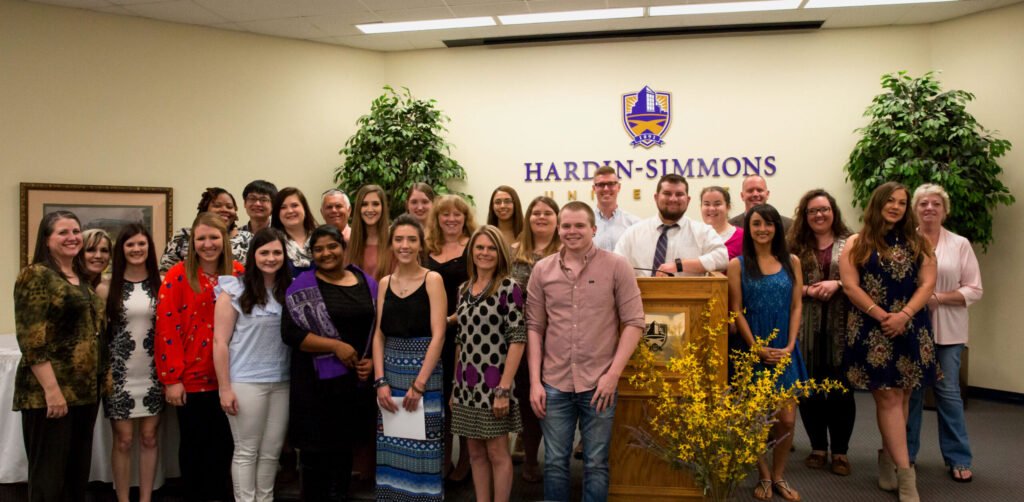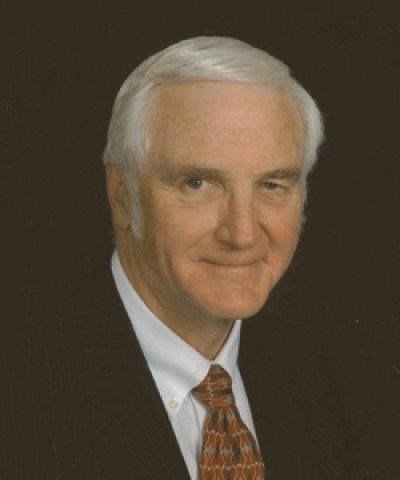Intro Block Section Instruction
Form Block Section
Write all of the introduction content below. Only use NON
FULL-WIDTH blocks.
Full-Width blocks can be inserted
outside of this block and will wrap around the form.
Use the custom HTML block below to embed your form.
Expand your ability to understand and empathize.
Dive into the complexities of the human mind, honing your skills to provide compassionate guidance and support to those facing emotional and psychological challenges. With your Master’s of Clinical Mental Health Counseling, you’ll be equipped to make a profound impact on individuals’ lives, fostering mental well-being and resilience in a diverse range of settings.
Do you have a calling to help others live healthier lives? Are you a patient and empathetic listener? Earn your master’s in clinical mental health counseling from Hardin-Simmons University and develop the skills and knowledge for many exciting and fast-growing careers in counseling, social services, and private practice settings.
The experience and expertise you’ll accrue as you earn your Master of Arts in Clinical Mental Health Counseling at HSU will prepare you to enter a quickly growing job market. In fact, the CMHC degree program boasts a 100 percent job placement rate for our graduates. Join a thriving community of peers, faculty, and alumni dedicated to faith and serving their communities.
Experiential Learning in the Master’s in Clinical Mental Health Counseling Program
One of the features that sets us apart from many of the top clinical mental health counseling master’s programs is our emphasis on real-world learning. For example, when you graduate from HSU’s CMHC degree program, you’ll have a minimum of 700 hours of clinical experience at the Psychology and Counseling Center on the HSU campus and through engagement in clinical work through an internship at an agency in the community.
You’ll develop a broad skill set in mental health by counseling individuals, couples, families, and groups — as well as assessing, consulting, supervising, and reviewing cases. Build a robust resume while learning how to apply the latest mental health counseling theories and methods to real-world settings in your community.
Why Earn Your Master’s Degree in Clinical Mental Health Counseling at HSU?
Why Earn Your Master’s Degree in Clinical Mental Health Counseling at HSU?
A Nationally Accredited CMHC Degree
Our Master of Arts in Clinical Mental Health Counseling program meets the standards set forth by the Council for the Accreditation of Counseling and Related Educational Programs (CACREP), ensuring that you graduate with a high-quality academic degree that is respected around the country for its excellence.
A Master’s in Clinical Mental Health Counseling Guided by Faith
We stand out among other clinical mental health counseling master’s programs thanks to our commitment to Christian ethics and values. We provide a distinctive balance of faith and psychology that emphasizes treating your patient as a whole person: biologically, psychologically, socially, and spiritually. We also integrate faith into the program through various missionary and support group opportunities.
An Extraordinary Community
As a student in the CMHC degree program, you’ll join a remarkable family of scholars, researchers, and professionals who share your passion for psychology and serving others. Students in the master’s in clinical mental health counseling program often develop lasting relationships with each other and those in the community with whom they work in internships and missionary work.
Outcomes
Clinical mental health counselors provide mental health services to a diverse range of patients — including children, adolescents, and adults individually, as well as couples, families, and groups. They work in settings like victim crisis centers, children’s hospitals, school districts, counseling practices, hospice providers, juvenile probation/detention centers, and universities.
Past CMHC degree program graduates have gone on to work at prestigious organizations including Cook Children’s Behavioral Health, Lena Pope, Betty Hardwick Center, Turning Point Counseling, Ministry of Counseling and Enrichment, Abilene Christian University, Angelo State University, and McMurry University.
When you earn your master’s in clinical mental health counseling from HSU, you’ll benefit not only from the immense satisfaction of following your personal and career dreams of helping others, but also from great job security. According to the U.S. Bureau of Labor Statistics, employment for substance abuse, behavioral disorder, and mental health counselors is expected to grow 23 percent over the next decade, more than double the national average of growth for other occupational fields.
How much can you make with a CMHC degree?
According to Payscale.com, the average salary for professionals with a master’s degree in clinical mental health counseling is $55,000.
Jobs for CMHC Degree Graduates
- Social worker
- Geriatric counselor
- Substance abuse counselor
- Sports counselor
- Rehabilitation counselor
- Educator
- Family and relationship therapist
- Career counselor
“I am so thankful for this program. It has taught me so much more about counseling in two years than I could have hoped for. The professors were all incredible at providing a warm and inviting atmosphere for learning. Additionally, I was able to grow confidence in myself as a clinician through supervision which allowed me to learn from the professor’s expertise while being encouraged to integrate my natural abilities and perspective. I felt like I was a highly valued classmate and student along with my peers. The learning environment was always supportive, intellectually stimulating, and fun.”
Emily McKinnon

Program Details
Click on plus button at the bottom of this Accordion BLOCK (not accordion tab) to create a new tab. Select Accordion TAB block to edit tab headline. Select nested blocks within accordion tab to edit content.
-
Master's Degree in Clinical Mental Health Counseling Requirements
Applicants for the graduate program in Clinical Mental Health Counseling (CMHC) must hold a bachelor’s degree from a regionally accredited college or university. A committee made up of Clinical Mental Health Counseling (CMHC) faculty will make admissions decisions based upon a comprehensive review of applicants. The degree-seeking student will submit an application (including the required fee) electronically.
Students may pursue both Licensed Professional Counselor (LPC) and the Licensed Marriage and Family Therapist (LMFT) licenses as well as the National Certified Counselor (NCC). The electronic application on the HSU website is sent to the Office of Admission and processed. All required items must be submitted to the Office of Admission, or if applicable, uploaded to the applicant’s account before the completed application will be sent to the CMHC Program for review.
Required Items (Academics)
- Official transcripts from all colleges and universities attended; official transcripts must be sent directly from the applicant’s college/university to the Office of Admission. The following are minimal recommendations to be considered for admissions to the CMHC Program:
- A grade point average of 3.0 overall (undergraduate) or a 3.2 for the last 60 hours of undergraduate coursework.
- A grade point average of 3.0 in 12 undergraduate hours in psychology or a related field are required perquisites. Some leveling courses may be required.
- GRE test. The GRE requirement may be waived for students with strong performance in their undergraduate program. The following are minimal recommendations to be considered for admissions to the CMHC Program:
- A Verbal Reasoning score of 153
- A Quantitative Reasoning score of 151
- An Analytical Writing score of 3.9
- Three letters of recommendation from references that can validate your potential for graduate study in counseling, as well as your appropriateness for the counseling profession. Two references are suggested from former professors; students applying from HSU are required to provide letters from professors who are outside of the CMHC Program and Psychology Dept. The third reference should be from a professional other than a family member.
- A writing sample will be required either before an interview or at the time of the interview (if applicant is invited for interview).
- Release for conducting a criminal background check for practicum/internship placement and state licensure board requirements. For applicants who have a criminal history, an evaluation letter must be obtained from the Department of Licensing and Regulation (https://www.tdlr.texas.gov/crimHistoryEval.htm). Results of this criminal history evaluation will not necessarily impact the admission decision but may affect practicum/internship site placement.
International students are recommended to have a score of 250 on the computer version of TOEFL, a score of 5 on the TWE, and a score of 50 on the TSE. Official copies from the national testing center must be sent directly to HSU Graduate Studies.
Applicants will apply and send all required items in by the semester deadline for entrance. Faculty will review all required components for each applicant, and those who are to be considered for admissions will be invited to campus for an interview with CMHC Program faculty. A completed application does not guarantee an interview.
Interview
Interviews may be in both group and/or individual format. Social interaction skills, questions focused on a) interest and motivation for a career as a licensed therapist; b) related work and life experience; c) awareness of applicant’s own issues related to family and personal growth; d) dealing with others with different beliefs or values; and e) integration of spirituality in counseling may be covered in the interview. Upon completion of the interview, admission decisions will be made based on a comprehensive review of all admissions information. An interview does not guarantee admission into the program. -
Accreditation & Assessment
The Clinical Mental Health Counseling (CMHC) Master’s Program is a 60-hour residential graduate program designed to meet the standards set forth by the Council for Accreditation of Counseling and Related Educational Programs (CACREP). CACREP, a specialized accrediting body recognized by the Council for Higher Education (CHEA), has granted accreditation to the Clinical Mental Health Counseling (M.A.) degree in the Department of Psychology and Counseling at Hardin-Simmons University for an eight-year period through March 31, 2025.
Assessment
Each year, a comprehensive report is created based on the following assessment tools used to evaluate the CMHC program: CACREP Course Objectives, Current Student Survey, Alumni Survey, Alumni Employer Survey, and Counselor Preparation Comprehensive Exam (CPCE) scores for graduating students. The program has a high pass rate for graduates who have completed the licensure exam. All of these measures are used to assess the CMHC program at Hardin-Simmons University and reported annually on the Assessment of Learning Outcomes (ALOC) report below.
-
Recent Graduate Testimonials
“I thoroughly enjoyed that my professors challenged me to understand and comprehend various theoretical orientations and counseling methods. We were allowed to explore the many aspects of the counseling profession. I also greatly appreciated how my professors connected with me as an individual and not just another faceless student. During supervision, my professors would continually highlight my strengths and successes while providing positive criticism on areas where I could improve.” -Marcus McCray, Licensed Professional Counselor-Associate, ‘23
“I really appreciated the fact that all of the professors were from such a wide array of backgrounds and theoretical orientations, so we were able to have a rounded-out view of the counseling profession as a whole. I also appreciated that all my professors genuinely connected with me as a person. I was not just a face in a class or a name on a paper. I was a human being. Supervision was incredibly beneficial clinically as well as emotionally in the support we received.” -Rachel Ellington, Licensed Professional Counselor-Associate, ’18
-
Faith & Service
One of the joys of teaching at Hardin-Simmons University is that it is truly an education enlightened by faith. Thus, our faculty purposefully weave their Christian faith into the courses that they teach. This intentionality exemplifies our belief that one’s faith cannot be separated from anything that we do in life, including earning a graduate degree.
For our graduate program in CMHC, this integration means continually asking ourselves and our students, “How as Christians do we counsel our clients while also incorporating the very best theories and interventions mental health professions have to offer?” We understand the process of therapy to be one of counseling others in a responsible manner that integrates faith, and that involves the knowledge gained from the field of counseling and psychology. As one might expect, the balancing and blending of these two areas is not achieved without a great deal of questioning and discussion. The answers achieved through this quest for integration are as unique and individualized as our students. The joy comes, then, not in our total agreement but in the rich discussions that arise from our striving to attain such integration.
This faith-based educational experience is embedded into our commitment to helping our students understand their role in eliminating biases, prejudices, and processes of intentional and unintentional oppression and discrimination while upholding high ethical standards for working with populations that are culturally diverse.
Service
The CMHC program is very involved in serving our community and the world.
- Career Counseling at Area High Schools as part of the Career Counseling course.
- Fields of Faith – CMHC students and faculty provide crisis counseling for middle and high school students attending a student led event where students invite, pray for, share with, and challenge their peers to read the Bible and follow Jesus Christ.
- Club Courage – CMHC students and graduates facilitate a six-week support group for children and teens experiencing loss.
- Camp Courage – CMHC students and faculty serve with Hendrick Hospice to put on a camp where children who have experienced loss participate in recreational activities that promote self-esteem, encourage self-healing and provide an outlet for unexpressed emotions.
- Mission Trip – As part of the course, Counseling Diverse Populations, students can choose to use and develop their counseling skills in different settings such as Vancouver, New York City, Orlando, or Northern Ireland to serve high-risk populations, elderly, homeless, victims of domestic violence, etc.
-
Clinical Experience
Each student accumulates 700 hours of clinical experience which includes counseling (individual, couple, family, and group), assessment, consultation, supervision, case review, and other types of internship activities. This clinical work is to be accomplished by providing services to clients at the Psychology and Counseling Center on the HSU campus, and also by engaging in clinical work through an internship at an agency in the community.
Internship Sites
HSU Psychology & Counseling Clinic – Students in the program have the opportunity to work with not only HSU students but also individuals, couples, families, children and adolescents in the community. Under the close supervision of program faculty, graduate interns provide affordable counseling in the clinic housed on the HSU campus. (More information located in HSU Psychology and Counseling Center tab below.)
Off Campus Internship Sites
Graduate students are also assigned an off-campus internship site. Students have the opportunity to learn more about our approved sites and request a placement that supports their interests and strengths. Many programs require students to find their own internship site, but our program places students in the local clinics, organizations, and mental health facilities that we believe will provide optimal experiences for professional growth.
-
Licensure
The CMHC program meets the educational requirements for licensure in multiple mental health professions in the state of Texas. In the Clinical Mental Health Counseling program, you will meet the requirements to become a Licensed Professional Counselor (LPC). By taking one additional elective and meeting specific internship conditions, you can choose to meet the requirements to be a Licensed Marriage and Family Therapist (LMFT). By completing the CMHC program and passing the National Counselor Exam (NCE) you are eligible to become a National Certified Counselor (NCC).
-
HSU Psychology and Counseling Center
Another reason we constantly rank among the most respected clinical mental health counseling master’s programs in the region is our commitment to providing service to the community and our students. HSU’s master’s degree in clinical mental health counseling program maintains a counseling clinic on campus in the historic Cowden-Paxton building. Qualified graduate students will help provide a full range of services*, including:
- Individual Therapy
- Pre-Marital Counseling
- Family Therapy
- Marital Therapy
- Child & Adolescent Therapy
- Career Counseling
*Not an exclusive list. The clinic maintains a list of referral resources for issues or needs beyond the scope of our clinic.
Hardin-Simmons University Psychology and Counseling Center
1317 Vogel St.
Phone: 325-670-1531
Fax: 325-670-1458Fees
- Session Fee: $20 (HSU students covered under student services fee)
- Testing: Vary by assessment
- Prepare & Enrich Pre-Marital Course $45 (5-6 sessions) $35 HSU student couple
Clinic Hours
Fall and Spring Term
- Monday – By appointment
- Tuesday, Wednesday & Thursday 9:00 a.m. – 8:00 p.m.
- Friday – CLOSED
Summer Hours
- Monday – By appointment
- Tuesday & Wednesday 12:00 p.m. – 8:00 p.m.
- Thursday – 12:00 p.m. – 5:00 p.m.
- Friday – CLOSED
The clinic is closed during school holidays and between academic terms.
Mailing Address
Hardin-Simmons University
Psychology and Counseling Center
Box 16115
Abilene, TX 79698-6115 -
Student Handbook



